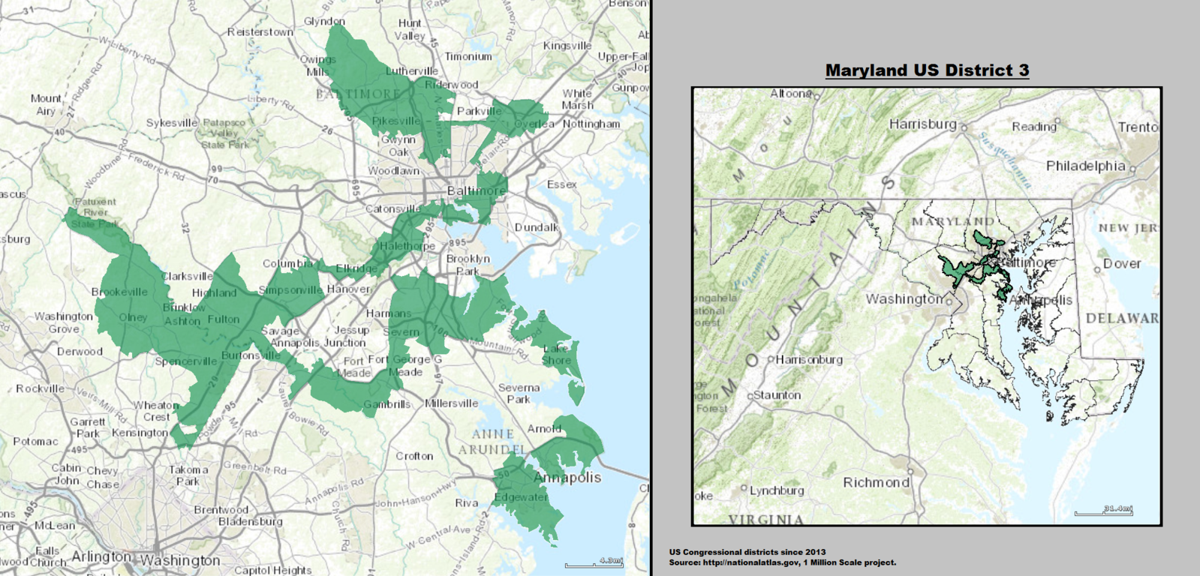Views expressed in opinion columns are the author’s own.
On Friday, Gov. Larry Hogan held a press conference on his renewed push for redistricting reform in the state of Maryland, urging the predominantly Democratic General Assembly to establish an independent and nonpartisan commission to draw Congressional districts following Maryland’s 2020 census. For a third consecutive year, Gov. Hogan’s legislation to create such a commission was heard in the General Assembly, and its chances for success are, again, slim to none.
Gov. Hogan isn’t the only one who understands that Maryland’s congressional districts are in need of independent oversight. The Diamondback’s opinion section has featured criticism of Maryland’s gerrymandered congressional districts five of the past six years (the reconfigured districts were approved by ballot referendum in 2012). The Washington Post gives Maryland the dubious honor of being “essentially tied” with North Carolina as the nation’s most gerrymandered state.
While the criticism of gerrymandered congressional districts isn’t new, there are some new proponents of reform, most notably former Maryland Gov. Martin O’Malley, who oversaw the creation of Maryland’s current congressional districts, including District 3, the second-most gerrymandered district in the entire country.
Speaking in January at Boston College Law School, where he serves as distinguished visiting professor, O’Malley acknowledged the need to combat the practice saying, “We must, on a state by state basis, push for an end to gerrymandered Congressional districts.” He also acknowledged his own gerrymandering as governor: “As a governor, I held that redistricting pen in my own Democratic hand. I was convinced that we should use our political power to pass a map that was more favorable for the election of Democratic candidates.”
With Gov. O’Malley seeing the light on redistricting reform, will General Assembly Democrats do the same? Unfortunately, the willingness to provide fair and accurate representation for Marylanders remains in short supply in Annapolis.
Rather than reject the need for reform altogether, Maryland Democrats acknowledge that Maryland needs reform but insist that Maryland should not act unless other states do the same. Senate Bill 1023, sponsored by Sen. Craig Zucker and co-sponsored by most of the Democratic senators, would set up an independent five-member commission, with four members appointed by the Democratic and Republican leaders of the House and Senate. However, SB1023 wouldn’t have Maryland form such a commission until New York, New Jersey, Pennsylvania, Virginia and North Carolina all do the same.
It isn’t hard to see that SB1023 and similar demands that Maryland should wait for regional or national action on gerrymandering are merely lip service to the clearly undemocratic construction of state congressional districts. Understandably, Maryland Democrats proposed this legislation to make ensure that any Democratic congressional seats lost in Maryland’s redrawn districts would be balanced with Democratic gains in these states. But these legislators are also smart enough to know that the likelihood that five other states would all undertake such action is slim to none, and Congress has never shown a serious interest in legislation to end the practice of gerrymandering. The end result is that Marylanders will be continued to be denied.
Maryland Democrats simultaneously acknowledge the wrongs of gerrymandering while refusing to take up Gov. Hogan’s proposal to end the practice in the state. It seems that for the third year in a row, Maryland Democrats will continue to put party over people, denying Marylanders the fair and accurate representation they deserve. Better luck next year to Gov. Hogan.
Sam Wallace is a public policy graduate student. He can be reached at samhwallace@gmail.com.



